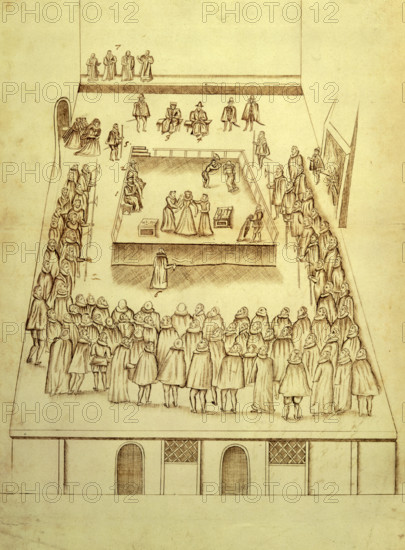
Légende
The execution of Mary, Queen of Scots, 1587. Mary's cousin, Elizabeth I, was sympathetic to her plight when she was forced to flee to England in 1567. However, as a Catholic with a claim to the English throne, Mary was a focus for plots, and she was confined to prison. Eventually she was brought to trial for complicity in a conspiracy, and executed at Fotheringhay Castle, Northamptonshire. Robert Beale was an official of Queen Elizabeth's council who carried the death warrant for Mary to Fotheringhay. His papers include sketches of the trial and execution of Mary. This sketch shows Mary attended by her women on the scaffold, and then with her head on the chopping block as the executioner raises his axe.
Date
1587
Crédit
Photo12/Heritage Images/Heritage Art
Notre référence
HRM25A15_136
Model release
NA
Property release
NA
Licence
Droits gérés
Format disponible
50,3Mo (2,7Mo) / 30,5cm x 41,4cm / 3602 x 4885 (300dpi)